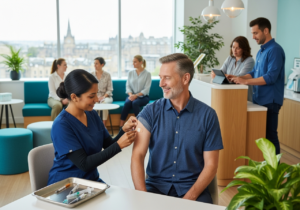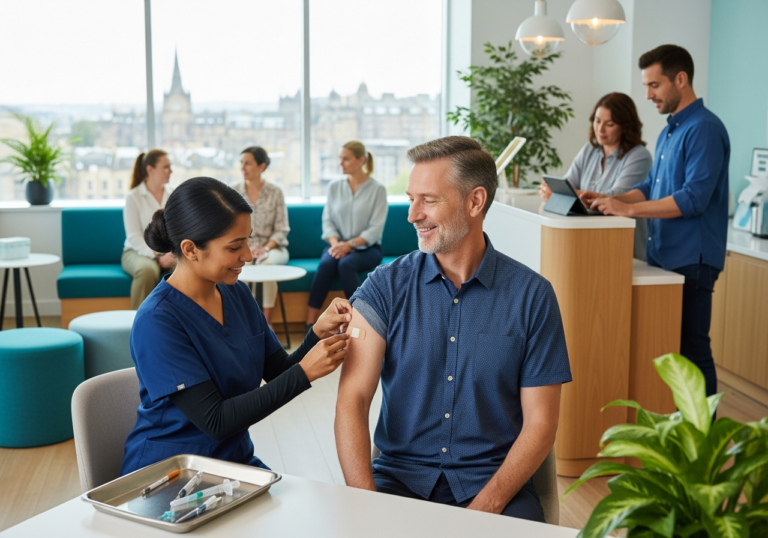How Effective Are Malaria Prevention Methods? Learn More
Malaria remains one of the most significant health concerns for travellers venturing into tropical and subtropical regions. With millions of cases reported annually worldwide, understanding how to protect yourself is not just a precaution—it’s a necessity. But just how effective are the various malaria prevention methods available today? Let’s explore this topic in detail to help you travel with confidence and peace of mind.
Understanding Malaria and Its Risks
Before diving into prevention strategies, it’s essential to grasp what malaria is and why it poses such a risk. Malaria is caused by Plasmodium parasites, which are transmitted to humans through the bite of infected Anopheles mosquitoes. These mosquitoes are most active during dusk and dawn, making travellers particularly vulnerable during these times.
Symptoms can range from fever, chills, and sweating to severe complications like organ failure if untreated. While malaria is preventable and treatable, its impact should never be underestimated. This is especially true for travellers unfamiliar with endemic areas, as they lack natural immunity to the disease.
How Can You Prevent Malaria?
Preventing malaria involves a multi-layered approach. There’s no single “magic bullet” solution, but rather a combination of methods that, when used together, significantly reduce your risk. Here’s a breakdown of the most common malaria prevention strategies and how effective they are.
1. Antimalarial Medications: A Key Line of Defence
Antimalarial drugs are often the first thing that comes to mind when thinking about malaria prevention. These medications work by either killing the malaria parasite or stopping it from multiplying in your body. Options like doxycycline, atovaquone-proguanil (commonly known as Malarone), and mefloquine are widely prescribed depending on the region you’re visiting and your personal health profile.
When taken correctly, these medications can be highly effective. However, their success hinges on strict adherence to the prescribed regimen. This means starting the medication before your trip, continuing during your stay, and completing the course after returning home. Skipping doses or stopping early can compromise protection.
It’s also worth noting that some antimalarials come with potential side effects, such as nausea or increased sensitivity to sunlight. Consulting a healthcare professional well before your trip ensures you receive a medication tailored to your needs and destination.
2. Mosquito Avoidance Measures: The First Line of Defence
Even the best antimalarial drugs won’t help if you’re bitten by an infected mosquito, so avoiding bites altogether is crucial. This involves a combination of practical steps:
– Sleeping under insecticide-treated bed nets (ITNs): These nets create a physical barrier between you and mosquitoes while also repelling them with insecticide. Studies have shown ITNs to significantly cut malaria transmission rates in endemic areas.
– Using insect repellents: Products containing DEET or picaridin are particularly effective in keeping mosquitoes at bay. Apply them to exposed skin and reapply as needed.
– Wearing protective clothing: Long-sleeved shirts, trousers, and socks can reduce the amount of exposed skin available for bites. Opt for light-coloured clothing, as dark colours may attract mosquitoes.
– Staying indoors during peak mosquito activity: If possible, avoid outdoor activities at dawn and dusk when mosquitoes are most active.
When combined, these measures provide robust protection against mosquito bites. However, they require vigilance and consistency—one missed night without a net or a forgotten application of repellent could increase your risk.
3. Environmental Controls: Tackling the Source
Another layer of prevention involves reducing mosquito populations in your immediate surroundings. While this may not always be feasible for short-term travellers, it’s worth considering if you’re spending extended periods in malaria-prone areas.
Draining standing water around your accommodation can help minimise mosquito breeding sites. Some properties in endemic areas also use residual insecticides to treat walls or install screens on windows and doors to keep mosquitoes out.
4. Vaccines: The New Frontier
In recent years, malaria vaccines have emerged as an exciting new tool in the fight against this disease. The RTS,S/AS01 vaccine (commonly referred to as Mosquirix) has been rolled out in several African countries, showing promise in reducing malaria cases among children.
However, it’s important to note that no vaccine currently offers complete protection against malaria. As a traveller, you’ll still need to rely on traditional methods like antimalarials and bite prevention, even if vaccines become more widely available in the future.
How Effective Are These Methods When Combined?
Individually, each of these methods offers significant protection, but their effectiveness skyrockets when used together. For example, combining antimalarial medications with mosquito avoidance measures can reduce your risk of contracting malaria to nearly zero. The key is to approach prevention as a layered strategy rather than relying on any single method.
Remember, malaria prevention isn’t just about safeguarding your own health. By preventing infection, you also help reduce the overall spread of the disease, contributing to global efforts to combat malaria.
Why Professional Guidance Matters
While it’s possible to research malaria prevention on your own, the nuances of your specific destination, health status, and travel plans make professional advice invaluable. Healthcare professionals can provide tailored recommendations, ensuring you’re fully prepared for your trip.
At our clinic, we specialise in travel vaccinations and advice, including comprehensive malaria prevention plans. Whether you need help choosing the right antimalarial medication or tips on effective mosquito avoidance, we’re here to guide you every step of the way.
Ready to Take the Next Step?
If you’re planning a trip to a malaria-prone area, don’t leave your health to chance. Book an appointment with our travel vaccination clinic today to ensure you’re fully protected. Together, we can create a customised prevention plan that allows you to enjoy your journey with confidence.
Visit us at our clinic to get started. Your health and safety are our top priorities, and we look forward to helping you embark on your travels worry-free.





